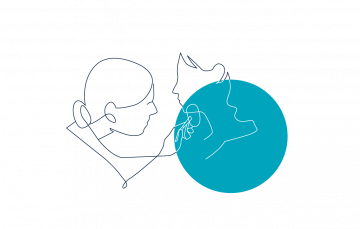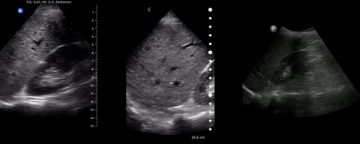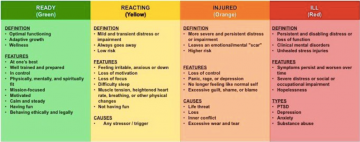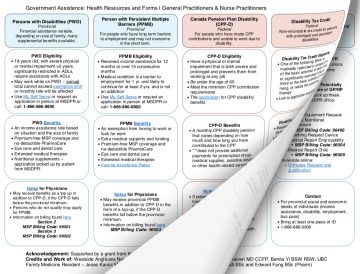By Dr. Steve Wong on December 23, 2020
2020 will go down as the most challenging year on a number of fronts — with unprecedented stressors affecting our personal and professional lives, not to mention the enormous struggles facing our local and global communities. Thanks to everyone on the front lines, and condolences to all those touched by this pandemic. I hope we can continue to work together to beat COVID-19 and I take solace in the fact the turning point seems to be coming as vaccines are deployed.
This year also marks This Changed My Practice’s 10th year. It’s been an incredibly rewarding journey. Given this milestone, I’ll indulge in a little bit of history and acknowledgments but also share some of our learnings and future plans.
By Dr. Jeff Harries on December 7, 2020
Editor’s note: Here is the revised article on AUD by Dr. Harries, which more prominently emphasizes the stepwise approach in the BC AUD guidelines. We appreciate the patience of our readership and special thanks to Dr. Harries for his passion and commitment to treating AUD. We would also like to thank Dr. Keith Ahamad (co-chair […]
By Dr. Jennifer Russel & Françoise Mathieu MEd RP on November 18, 2020
A few weeks into the COVID-19 crisis and as a psychiatrist working in a tertiary care hospital, while homeschooling my two boys, I had a strong awareness that I needed to really work to keep myself healthy in a way that I have never felt before to make sure I was able to survive this crisis. I needed to grab my psychological PPE.
By Dr. Simon Moore on November 4, 2020
A 2019 systematic review of 26 studies (4 from Canada) concluded that there is a “unanimous lack of self-perceived knowledge” among practitioners regarding medicinal cannabis use. Now, when a patient asks me about cannabis, I no longer suffer from dizziness, dry mouth, and paranoia.
By Dr. Eileen Murray on October 14, 2020
Acne vulgaris is a distressing disease beginning at puberty, involving the pilosebaceous follicles of the skin on the face, chest, and back. The incidence of acne in teenagers is nearly 100%. Treating teenagers with acne was an exceptionally important part of my practice.
By Drs. Philip Lee and Stefanie Falz Mclellan on September 30, 2020
The integration of point of care ultrasound (PoCUS) in the emergency department workflow is not always easy, and these challenges have been amplified in the time of COVID-19. The COVID-19 pandemic has led to an increased interest in the use of handheld ultrasound devices as they simplify infection control procedures and take up little space in emergency rooms crowded with critical care equipment.
By Azin Ahrari, Neda Amiri, Mohammad Bardi, Natasha Dehghan on September 16, 2020
Giant cell arteritis (GCA) is the most common vasculitis in adults above 50 years of age. GCA is a rheumatological emergency. Rapid diagnosis and treatment are required to reduce the risk of complications.
By Omid Kiamanesh, MD, FRCPC on August 26, 2020
Despite intensive lowering of LDL-C using lipid-modifying therapy, residual ASCVD risk persists, particularly in those with hypertriglyceridemia. Icosapent ethyl has been shown to reduce residual ASCVD risk and cardiovascular death in select patients with hypertriglyceridemia while on statin therapy.
By Dr. Joanna Cheek on August 5, 2020
It’s not easy to train in new skills to support our mental health when the race has already begun. We are all going to cycle out of the green zone many times, regardless of our practice of self-care. We need each other right now to provide peer support to help each of us notice when we’re moving to the right of the stress continuum and pause or pace ourselves so we can complete this marathon together.
By Drs. Nima Moghaddam, Christopher Cheung, Kenneth Gin on July 15, 2020
The debate over the optimal management in stable ischemic heart disease has grown over the past decade with more evidence supporting a conservative medical therapy approach over an upfront invasive strategy with coronary revascularization. However, there remains significant practice variation in deciding when to pursue coronary revascularization.
By Dr. Shireen Mansouri on June 10, 2020
Compassion is the ability to notice that someone is suffering, feel connected to them, and want to act to alleviate the suffering. Self-compassion is the same as compassion but directed towards oneself. Be a good friend to yourself.
By Beata Chami on May 20, 2020
Healthcare professionals have been hit hard by the consequences of COVID-19. Some are putting in long hours, treating infected patients, and physically distancing themselves from their families. Others are losing work in their clinics and trying to figure out how to keep their practices afloat, all while worrying that they may be contracting the virus and putting their health at risk. This article will provide strategies and tools to support your well-being during the COVID-19 pandemic.
By Drs. Lawrence Chow and Rose Hatala on May 6, 2020
In the era of the COVID-19 pandemic, our most vulnerable patients (the elderly and those with chronic illnesses) are disproportionately at the highest risk of mortality. In this difficult and chaotic time, it’s more important than ever that we maintain a humanistic approach to care. This involves keeping the patient, and their values and preferences, front and center in our care.
By Drs. Bruce Hobson, Daniel Ngui, Christie Newton, Shirley Sze and Steve Wong on April 14, 2020
You are not alone in this difficult time. It’s OK to feel like you are struggling, frustrated and/or anxious, everyone is. You can get help for personal health issues, workflow problems, staffing concerns, financial difficulties, clinical dilemmas, and technology challenges. You can do this; we can all do this… together.
By Tandi Wilkinson MD CCFP-EM on April 1, 2020
I conducted a study examining effective peer support in rural Canadian physicians. (Spoiler alert: those who have had good peer support say it is essential to their career in medicine.) Here is what I am doing now to ensure I, and my team, can manage through this unprecedented time at work.
By Dr. Janet McKeown on March 11, 2020
Government Assistance: Health Resources and Forms tool has helped me understand assistance with a more organized approach. It has helped me access information quickly and it has helped me be more knowledgeable about billing provincially, federally and privately. It is also an efficient tool to use in a teaching environment to help learners better understand government assistance.
By Dr. Susan Woolhouse on February 26, 2020
My past experiences during my palliative care rotations reassured me that children could benefit from bearing witness to a loved one’s death. Why would MAID be any different? I set out to learn more about how children grieve and ways in which I could support children through the dying of a loved one seeking MAID.
By Dr. Mary V. Seeman on February 5, 2020
Fellow psychiatrists often ask whether their patients with schizophrenia are aging prematurely. They point to the fact that several of their patients seem slowed down, forgetful, fidgety, and that they garble their words and stutter. These are, of course, all side effects of antipsychotic medication.
By Clarrisa Wallace, Sue Mills and Fahreen Dossa on January 24, 2020
In preparation for teaching a Clinical Skills session, we diligently reviewed the tutor guide and video ahead of time. However, we sometimes wondered how other teachers were translating the advice from the guide into their teaching.
By Dr. Breay Paty on January 21, 2020
The therapeutic use of testosterone has increased dramatically in the last two decades. The reasons for this appear to be increased frequency of testing and marketing of testosterone replacement for middle-aged and older men. While men with unequivocally low testosterone levels usually benefit from hormone replacement, the risk/benefit ratio for men with equivocal (“borderline”) levels is not clear, especially men who desire fertility.
By Dr. Dan Bilsker on January 8, 2020
It is well-known that men die on average 3-4 years before women – but why? We identified three main factors contributing to Years of Life Lost by men compared to women: cardiovascular disease, suicide, and motor vehicle accidents. As a psychologist, I was intrigued by the substantial contribution of suicide.























Recent Comments